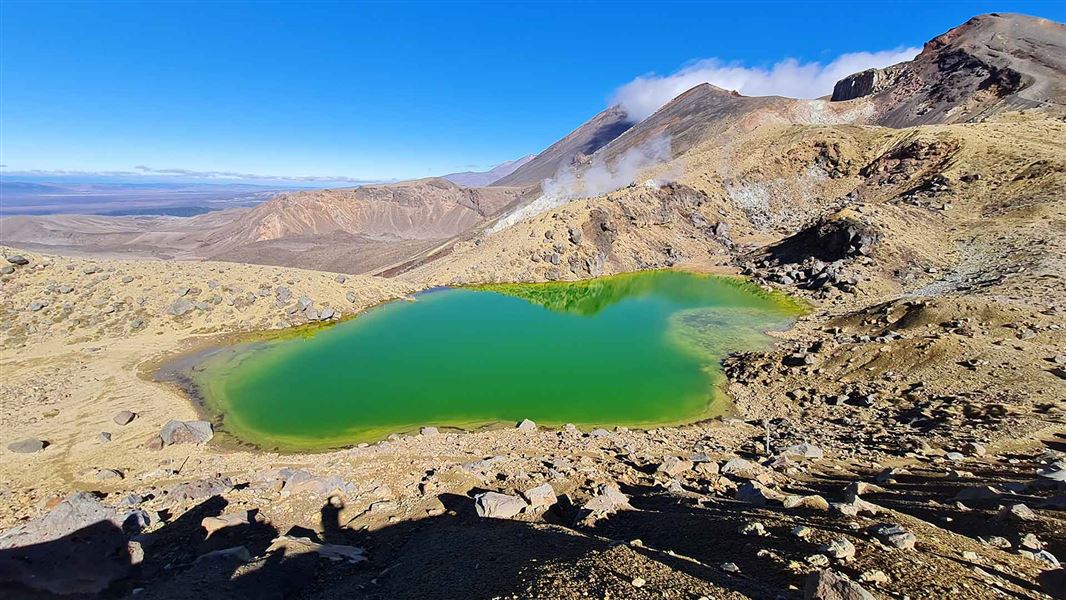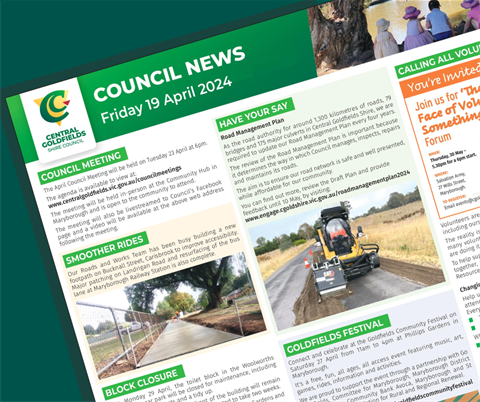[Image appears of Dr Beth Fulton standing in an office talking to the camera and text appears: Dr Beth Fulton, Research Group Leader, CSIRO Oceans and Atmosphere]
Dr Beth Fulton: G’day. I’m Dr Beth Fulton. I work at the CSIRO.
[Images move through of dolphins swimming in the water, fish swimming around a sea plant, and then tiny tropical fish swimming around a reef]
I’m a little bit different from most scientists that you might think about in that I live entirely inside a computer.
[Images move through of a facing and then rear view of Beth working at her computer, her fingers typing on the keyboard, Beth working at her computer again, and fish swimming on the screen]
Now, that sounds funny but that’s because I use maths to create a picture of how the world works, how the climate influences, how people work in it, so that we can basically figure out what the future would look like and find a really good future.
[Images move through of the fish swimming on the screen and then Beth talking to the camera again]
So, I got into that by always have a love of maths. So, my mum and dad say that I used to sort my peas and vegetables on my dinner plate as a little kid into mathematical patterns which sounds a little bit odd but it worked for me.
[Image changes to show a harvester moving through a crop]
I grew up on a farm so I’ve always loved animals.
[Images move through of a male working on a fishing boat, a close view of a tub of fish, and then a turtle swimming over a reef]
So, when I went to university I married the two together.
[Images move through of a river in the foreground and high-rise buildings in the background, a pristine waterfall, and a wide, flowing river]
So, I brought together ecology and maths so we can describe that world.
[Images move through of a view looking down on the ocean bed, tropical fish swimming over a coral reef, the sun setting behind a jetty and the camera pans around the harbour]
What really got me interested in the ocean was that living on a farm my mum would take us to the beach to get away from the farm so that we had a break.
[Image changes to show a female sitting on the beach watching the waves crash on the rocks]
And I would sneak out and sit on the beach.
[Image changes to show an aerial view looking down on a pod of dolphins playing in the water]
One early morning when all my brothers and sisters were asleep a pod of dolphins came in to play on the beach and they came right up to me.
[Image changes to show Beth talking to the camera]
I should have been scared but I wasn’t. Actually they came right up close, they touched me. So, I wasn’t going after them; they came to me.
[Images move through to show a brook rippling through the undergrowth, a lizard on a rock near the base of a waterfall, and then a turtle swimming over the sea bed]
And that really, really got me stuck into wanting to do marine science.
[Images move through to show a very close view of a crab digging into the sand, bright tropical fish swimming around a reef, and then scuba divers watching the fish around the reef]
I’d always loved climbing over rocks and looking at the crabs and stuff like that but those dolphins really made it for me and from then on it was always about the ocean.
[Images move through of stripy fish swimming on the ocean floor, fish swimming around a reef, the Investigator ship moving through the water and a male in the cab of the ship]
About 50% of the oxygen that we breathe, so that’s every second breath that you take is probably made by plants that live in the ocean. So, we’re all super connected to the ocean. It doesn’t matter where we live, in Australia or anywhere in the world.
[Image changes to show a rocky island in the ocean and then the image changes to show tubs of fish in ice being hauled up]
Ocean fish also produce a lot of food, all the way around the world.
[Image changes to show a close view of a fisherman talking and then the camera pans down to the tub of fish he is standing next to]
In some places it’s all they eat.
[Images move through of scuba divers moving along the ocean floor looking at the fish and then the image changes to show Beth talking to the camera]
But if you took all the ocean fish that are caught and you smeared it across all the people in the world, every year each one of us would eat 20 kilos of ocean fish.
[Image changes to show crew at the back of the Investigator deploying a marine corer from the deck of the boat with a crane and the camera zooms in on the head of the crane]
So, the ocean is really important to the way that we live.
[Camera zooms out to show the crew on the deck of the boat again and then the image changes to show a view over the ocean and the camera pans over the surface of the ocean]
It’s also important to understand how what we do on the land is connected to the ocean.
[Image changes to show a close view of snow capped mountain peaks and then the image changes to show an aerial view looking down on a motorway in a big city]
Even what we do right up on the top of a mountain or in a desert feeds back to the ocean by the signature it leaves in the water. So, the things that we put in the water, the things that we do on land is connected.
[Image changes to show a view looking up at three wind turbines turning and then the image changes to show a cow standing in a green paddock]
So, the way that we can help the ocean is to be sensible about how we use it, to think about putting your rubbish in the bin, about being careful how we use the land.
[Image changes to show many cows grazing in a paddock]
And so that’s where my challenge to you comes.
[Images move through to show a broccoli crop being irrigated by overhead sprinklers, a close view of the broccoli plants, a desert landscape, and a group of people looking at a map on a screen]
I spend a lot of time thinking about what that future of that ocean looks like and I get to hear from Prime Ministers and bank managers and fishermen and traditional owners of the land.
[Image changes to show Beth standing in an office talking to the camera again]
But I want to hear from you about how you’re connected to the ocean and what you want that future of that ocean to look like.
[Music plays and text appears on a black screen: Get involved at www.csiro.au/scienceweekchallenge and share your ideas on social media using #STEMChallenge]
[Image changes to show the CSIRO logo on a white screen and text appears: CSIRO Australia’s National Science Agency]
- View transcript
- Copy embed code








